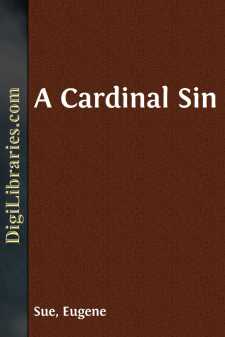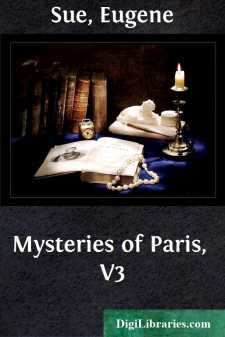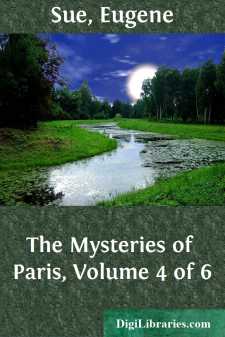Categories
- Antiques & Collectibles 13
- Architecture 36
- Art 48
- Bibles 22
- Biography & Autobiography 813
- Body, Mind & Spirit 142
- Business & Economics 28
- Children's Books 17
- Children's Fiction 14
- Computers 4
- Cooking 94
- Crafts & Hobbies 4
- Drama 346
- Education 46
- Family & Relationships 57
- Fiction 11829
- Games 19
- Gardening 17
- Health & Fitness 34
- History 1377
- House & Home 1
- Humor 147
- Juvenile Fiction 1873
- Juvenile Nonfiction 202
- Language Arts & Disciplines 88
- Law 16
- Literary Collections 686
- Literary Criticism 179
- Mathematics 13
- Medical 41
- Music 40
- Nature 179
- Non-Classifiable 1768
- Performing Arts 7
- Periodicals 1453
- Philosophy 64
- Photography 2
- Poetry 896
- Political Science 203
- Psychology 42
- Reference 154
- Religion 513
- Science 126
- Self-Help 84
- Social Science 81
- Sports & Recreation 34
- Study Aids 3
- Technology & Engineering 59
- Transportation 23
- Travel 463
- True Crime 29
The Mysteries of Paris, Volume 1 of 6
by: Eugene Sue
Description:
Excerpt
CHAPTER I.
THE TAPIS-FRANC.
It was on a cold and rainy night, towards the end of October, 1838, that a tall and powerful man, with an old broad-brimmed straw hat upon his head, and clad in a blue cotton carter's frock, which hung loosely over trousers of the same material, crossed the Pont au Change, and darted with a hasty step into the Cité, that labyrinth of obscure, narrow, and winding streets which extends from the Palais de Justice to Notre Dame.
Tapis-franc: literally, a "free carpet;" a low haunt equivalent to what in English slang is termed "a boozing ken."
Although limited in space, and carefully watched, this quarter serves as the lurking-place, or rendezvous, of a vast number of the very dregs of society in Paris, who flock to the tapis-franc. This word, in the slang of theft and murder, signifies a drinking-shop of the lowest class. A returned convict, who, in this foul phraseology, is called an "ogre," or a woman in the same degraded state, who is termed an "ogress," generally keep such "cribs," frequented by the refuse of the Parisian population; freed felons, thieves, and assassins are there familiar guests. If a crime is committed, it is here, in this filthy sewer, that the police throws its cast-net, and rarely fails to catch the criminals it seeks to take.
On the night in question, the wind howled fiercely in the dark and dirty gullies of the Cité; the blinking and uncertain light of the lamps which swung to and fro in the sudden gusts were dimly reflected in pools of black slush, which flowed abundantly in the midst of the filthy pavement.
The murky-coloured houses, which were lighted within by a few panes of glass in the worm-eaten casements, overhung each other so closely that the eaves of each almost touched its opposite neighbour, so narrow were the streets. Dark and noisome alleys led to staircases still more black and foul, and so perpendicular that they could hardly be ascended by the help of a cord fixed to the dank and humid walls by holdfasts of iron.
Stalls of charcoal-sellers, fruit-sellers, or venders of refuse meat occupied the ground floor of some of these wretched abodes. Notwithstanding the small value of their commodities, the fronts of nearly all these shops were protected by strong bars of iron,—a proof that the shopkeepers knew and dreaded the gentry who infested the vicinity.
The man of whom we have spoken, having entered the Rue aux Fêves, which is in the centre of the Cité, slackened his pace: he felt he was on his own soil. The night was dark, and strong gusts of wind, mingled with rain, dashed against the walls. Ten o'clock struck by the distant dial of the Palais de Justice. Women were huddled together under the vaulted arches, deep and dark, like caverns; some hummed popular airs in a low key; others conversed together in whispers; whilst some, dumb and motionless, looked on mechanically at the wet, which fell and flowed in torrents. The man in the carter's frock, stopping suddenly before one of these creatures, silent and sad as she gazed, seized her by the arm, and said, "Ha!...












